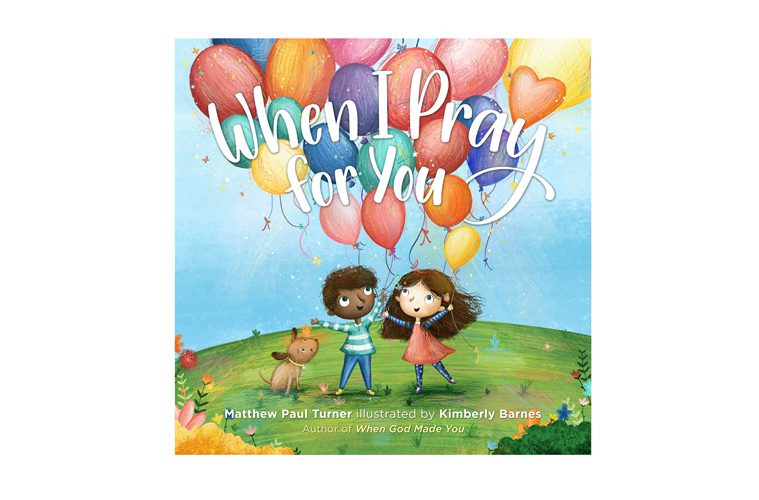Prior to becoming a parent, best-selling author Matthew Paul Turner, had no idea how often he would pray for his children or how prayer would so profoundly affect him.
Now, as the parent of three young children, Turner says, “In many ways, praying is a bit like breathing: a consistent, conscious and subconscious longing of hope on behalf of my kids. Praying over my kids has been healing, redeeming, and brings peace to my sometimes anxious heart.”
With his trademark rhythmical style, whimsy and heartfelt emotion, Turner reveals the tender feelings connected with watching a beloved child grow and experience the world in his new children’s book, “When I Pray for You.” Here he shares more about the book with Caring:
How were you inspired to write “When I Pray for You”?
My kids have inspired every picture book I’ve written so far, but none more than this one. As a person of faith, I knew parenthood would include lots of praying; but I’m not sure I realized how often I’d pray, oftentimes without my kids ever knowing I’d prayed. In many ways, praying is a bit like breathing, a consistent conscious and subconscious longing of hope on behalf of my kids. I think prayers over my kids numerous times throughout the day and my hope is that “When I Pray For You” will capture the simplicity and passion of that reality.
How are you hoping the book will encourage children?
My hope is that this book will offer kids a tangible celebration of prayer, how it looks when you’re not gathered around a dinner table or outside of a house of worship. Regardless if one is engaged in faith or not, I think parenting is just one of those realities that makes many of us pray, even if those prayers manifest as wishes, hopes, wonders or dreams. I think this book gives kids a glimpse at their parents’ love and passion for them, their well-being and their futures.
How has praying for your kids affected you?
For me, praying over my kids is healing, redeeming and brings peace to my sometimes anxious heart.
“When I Pray for You” is the third picture book you have written. How have people responded to your previous children’s books?
I’m so humbled, grateful, and at times, blown away, by the response to my children’s books. So many parents, grandparents, pastors, chaplains, counselors and teachers have written me messages, many of them offering a story or two about how my books have impacted their families, loved ones, congregations and classrooms. It’s been a sincere joy to hear all of the ways these books have brought love and light into people’s lives.
How have you found reading to your kids to be helpful for them? How has it enhanced your relationship with them?
I love reading with my kids. It’s such a rich and rewarding time for them and for me, too. Books can get us to laugh out loud or discuss interesting topics or lead us into heartfelt chats about God or diversity or being kind. Books are such powerful tools because they help talk about things that many of us parents wouldn’t know how to discuss or might feel awkward just bringing them up. But with a book, it opens the door to chat about serious and nonsensical subjects, discussions that help me shape or influence their hearts and minds to think about important ideas.
How would you encourage the parents who really don’t want to read to their kids?
Reading to our kids is crucial because it helps shape their love for books early on. And while I know it’s important, it can also be hard sometimes—especially when it’s been a long day and you’re tired. But it’s so important, so we try to make it a priority. I think the best advice would be to choose short, easy-to-read books or books that you loved as a child. Start there. And see where it goes.
One of my favorite moments as a parent is when I learn that my kids love the same things as I love. But it’s helpful to get into a regular routine with books. Start the bedtime process 15 minutes earlier, so you can dedicate that extra time with a book before bedtime. Moreover, if there’s ever a topic that you feel your child is curious about and you’re not sure how to bring it up—use a book to bring that subject up with them. You’ll find that the best chats with your kids happen after sharing a book with them.












